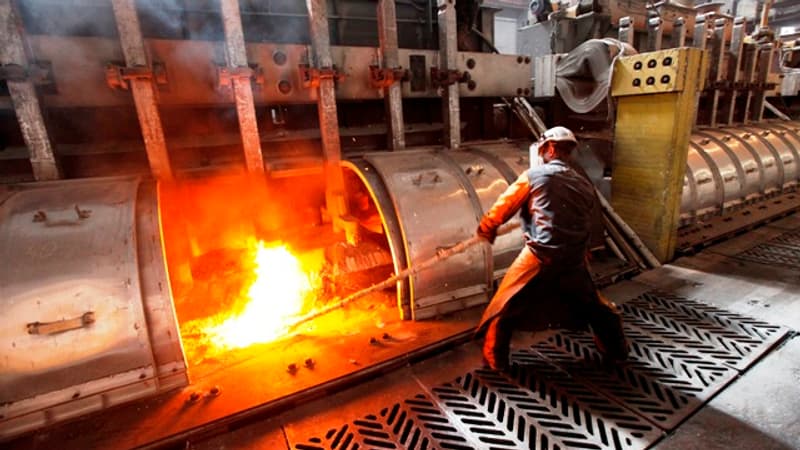The representative organizations of metallurgical engineers and executives deplored on Friday a “disagreement” with the UIMM employers’ union, at the end of the negotiations on minimum wages in the field.
After two meetings to negotiate the sectoral minimums of the national collective agreement of engineers and managers, “the unions and employers’ organizations separated due to a disagreement,” the CFE-CGC, FO and CFDT said in a joint statement.
In question, insufficiently taken into account inflation, in which he “destroyed” the social dialogue, traditionally in place.
A proposal of +4.5%
The three unions point to “the closed position of the UIMM in this negotiation”: it finally proposed a 4.5% increase, according to Frédéric Homez, general secretary of the FO metallurgical federation.
“We regret the decision of the unions not to have accepted the proposal for an increase (…) up to +4.5% in session, after we already agreed on an increase of 3.1% in 2022 in a context that is however uncertain for the industry”, indicated the UIMM.
She believes that the French industry is now in an “even more delicate” situation, after the Covid-19 pandemic and given the energy crisis and the consequent increase in costs.
“In 2022, we signed a 3.1% agreement at the beginning of the year that was very good, but we did not know that inflation was going to get out of hand,” said Frédéric Homez, who remembers that it was high at 5.2 %. averaged over the year and was still expected to be high in 2023.
Unions demand +6%
In order to catch up with inflation in 2022 and in anticipation of 2023, the inter-union initially demanded 7%. It has revised its requirements downward, to 6%.
“The UIMM said that it was its last proposal,” lamented Homez, according to whom this latest version is subject to the signature of the unions before February 8.
“As always, we remain open to dialogue, for the sake of the reindustrialization of the country,” said the UIMM, without mentioning, however, a new negotiation session.
It adds that branch employees are paid “on average about 13% more than in the rest of the economy.”
For the inter-union, this “failure” will have “consequences”, in particular on “the deployment of the new national collective agreement”, scheduled for January 2024.
This agreement affects engineers and managers in the metallurgical branch, that is, 400,000 people.
Source: BFM TV


